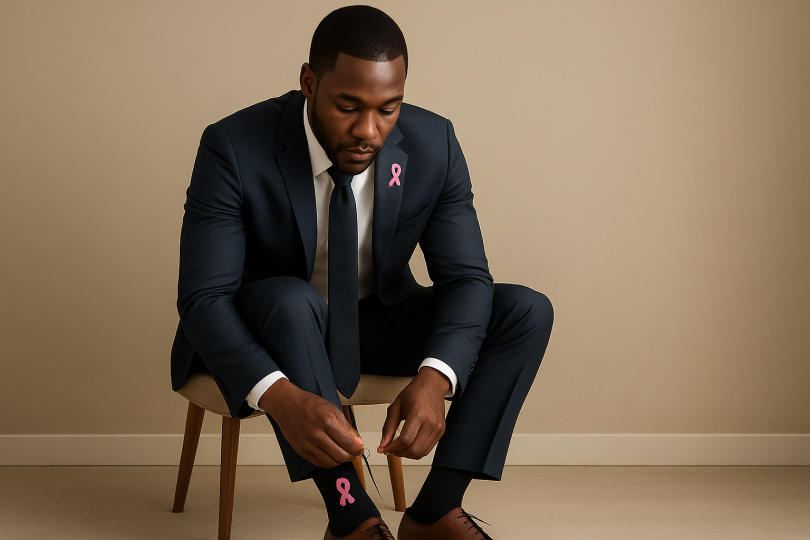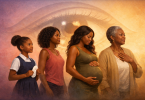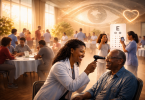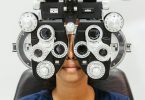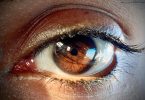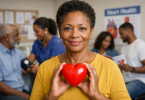Breast cancer is often painted in pink, but men, especially Black men, are not immune to its heavy brushstrokes. According to the American Cancer Society, about 2,800 new cases of male breast cancer will be diagnosed in the U.S. this year, with nearly 530 deaths expected. While men account for less than 1% of all breast cancer cases, research shows that Black men face a higher mortality rate than their white counterparts.
This disparity is not just biological—it’s about silence, stigma, and the absence of safe spaces where Black men can share their stories, fears, and triumphs.
For decades, breast cancer has been marketed as a “woman’s disease.” Campaigns flood October with feminine imagery, pink ribbons, and all-female survivor panels. That narrative leaves men standing on the sidelines, invisible in the conversation.
The consequences are profound. Many men don’t recognize the early warning signs such as a painless lump, nipple changes, or skin dimpling. By the time they seek medical help, the cancer has often advanced. In fact, studies show that men are more likely than women to be diagnosed later, contributing to poorer survival outcomes.
For Black men, the stakes are even higher. Structural inequities in healthcare access, mistrust of the medical system, and cultural stigma around illness compound the challenges. The result is a quiet crisis where Black men battling breast cancer often fight alone.
Digging into the Cause
Why are Black men with breast cancer overlooked? The answer rests in a painful blend of cultural, clinical exclusion, and systemic barriers.
1. Cultural Silence: In many Black households, conversations about health, especially “taboo” conditions tied to perceived femininity, rarely surface. Breast cancer, for a Black man, can feel doubly stigmatized as a disease “not meant for men” and a condition tied to vulnerability.
2. Clinical Exclusion: Major breast cancer research trials have historically focused on women. Men are frequently excluded, leaving limited data on how treatments may affect them differently. Black men remain severely underrepresented.
3. Systemic Barriers: From delayed screenings to limited culturally competent care, Black men face a healthcare system that often fails to recognize our unique needs. Medical mistrust, rooted in historical and ongoing injustices, deepens this divide.
Finding the Solution in Support
Support groups are not simply about sitting in circles and sharing feelings; they are lifelines. For Black men navigating breast cancer, support groups offer education, empowerment, and emotional grounding. And slowly, a movement to support men surviving breast cancer is growing.
- HIS Breast Cancer Awareness is one of the few organizations tailored specifically for men. It provides resources, blogs, and podcasts that break through the pink-only narrative, reminding men that their experiences are valid and visible
- Virtual meetups, like those hosted by Breast Cancer Now, give men the chance to connect across miles, sharing struggles and victories in a safe, judgment-free space. These online circles can be particularly powerful for Black men who may feel isolated in local communities where male breast cancer is rarely acknowledged
- The Male Breast Cancer Global Alliance takes the fight a step further by linking men to researchers, clinicians, and advocates. This connection ensures their voices are included in research and policy—an essential step in correcting decades of neglect
- Memorial Sloan Kettering Virtual Support offers moderated online meetings where cancer patients and survivors can access both education and empathy, providing a professional yet compassionate environment to share and learn
- The American Cancer Society’s Cancer Survivors Network provides discussion boards and private messaging options, making peer-to-peer connections available any time of day for those who need ongoing encouragement
- Closer to home, the Thelma D. Jones Breast Cancer Fund (TDJBCF) creates culturally relevant conversations, including virtual sessions focused on men’s mental health and cancer challenges. For Black men, this is about reclaiming community, identity, and healing in a space that sees and honors their lived experiences
These resources, while different in scope, converge on one truth: support saves lives. They not only provide information but also chip away at the silence that has kept men, especially Black men, in the shadows of breast cancer care.
Building Stronger Networks Through Collective Support
Support groups are only as strong as the people who show up. For Black men, that means stepping into spaces that may feel uncomfortable at first but can ultimately transform survival into thriving.
Healthcare providers, too, have a role in recommending men-specific breast cancer resources, encouraging participation in clinical trials, and dismantling the gendered stereotypes that keep us silent.
For families and friends, the call is simple yet profound: listen without judgment, encourage open dialogue, and remind the men in your life that vulnerability is not weakness, it is strength wrapped in honesty.
For the broader community, supporting organizations that prioritize inclusivity and representation in breast cancer awareness can amplify the voices that have long been muted. Breast cancer may knock on the door of only a small percentage of Black men, but when it does, the ripple effects touch families, faith circles, and future generations. Support groups act as steady hands in the storm, reminding men that they are not alone, not invisible, and not without power in the fight.
Together, let’s uplift the men in our community. In doing so will not only strengthen our fight against breast cancer but also rewrite the narrative of who belongs in the conversation.
To learn more about how representation matters, download our Representation Matters poster here.
Further Reading:
Black Men and Breast Cancer. https://www.elevateblackhealth.com/black-men-and-breast-cancer/
Cancer and African American People. https://www.cdc.gov/cancer/health-equity/african-american.html
African American Male Breast Cancer. https://aabcainc.org/male-breast-cancer/
Black Bodies, Black Health: Transforming Breast Cancer Care.
https://realpink.komen.org/black-bodies-black-health-transforming-breast-cancer-care/


